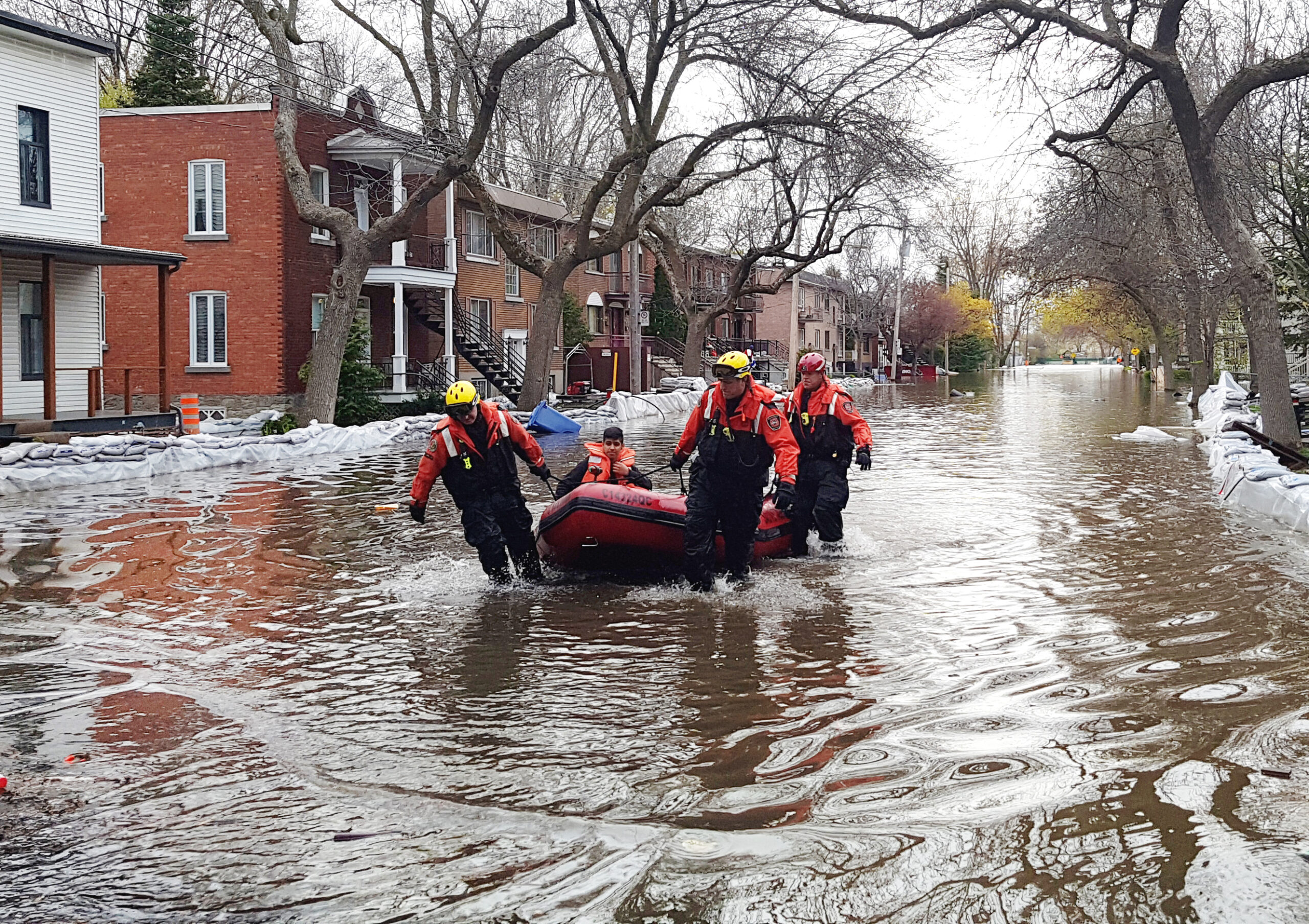Quebec and Ontario were hit by violent storms this past May, causing severe damage in their path. More than 500,000 Quebecers and 750,000 Ontarians were without power. Ten people lost their lives.
In Val-David, half the population temporarily lost access to drinking water. In Saguenay and Chicoutimi, there were landslides. Meanwhile, urban dwellers have been bracing for an even hotter summer following heat waves that have already caused over 150 deaths in Quebec. These deaths follow last year’s “heat dome” across western Canada that caused 70 deaths in Alberta and 619 in British Columbia.
Pierrick Berger, a climate policy researcher interviewed by North Star, believes that Quebec is lagging behind adapting to climate disasters. Berger pointed out that in the Quebec government’s Plan for a Green Economy, “the entire adaptation component [mitigating risks related to flooding, erosion, and adapting infrastructure] makes up for only 7% of the total budget of $7.6 billion.”
“Since Sainte-Marthe-sur-le-Lac’s 2017 and 2019 floods, we know that [floods] will be expected more and more. But we’re just starting to do the mapping in Quebec. When we look at the funding for adaptation, one of the only measures that is called ‘adaptation’ is the mapping of flood zones.”
There is also $119 million alloted over 5 years for a “heat, precipitation, greening risk reduction program.” Comparatively, $5.7 billion is provided for “transportation electrification.” A large portion of the fund has been allocated for people looking to purchase electric vehicles. “We’re giving bonuses to rich people who want to buy Tesla cars,” Berger remarked.
As for the study of the impact of the measures taken by the government, Berger comments that “there is no independent verification that is done; it is the government that assesses itself. We don’t know their methodology. The data we have does not allow us to have a reliable statement of what the impact of the measures has been.”


Be part of the conversation!
Only subscribers can comment. Subscribe to The North Star to join the conversation under our articles with our journalists and fellow community members. If you’re already subscribed, log in.